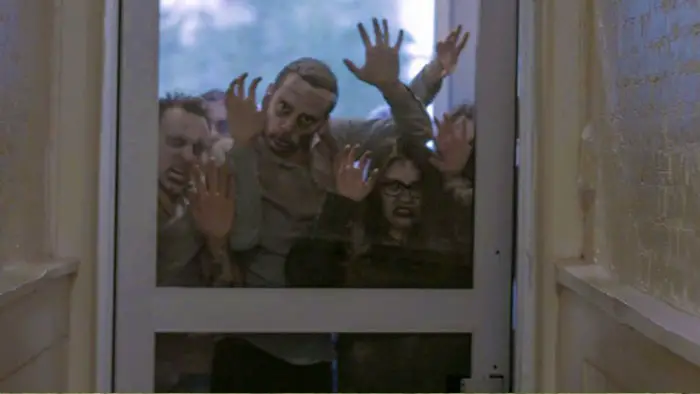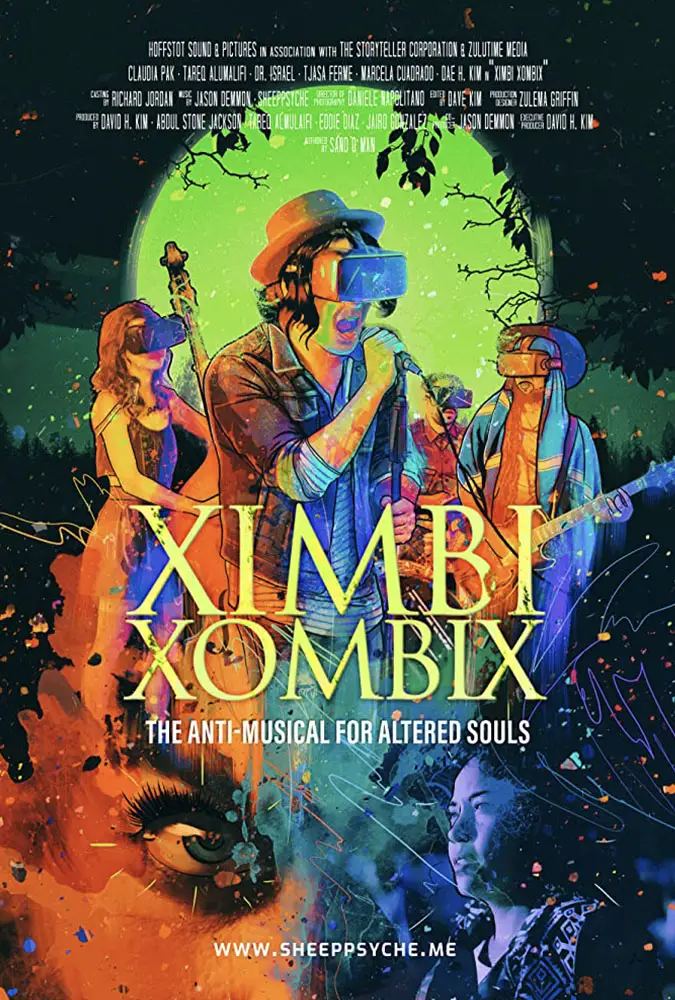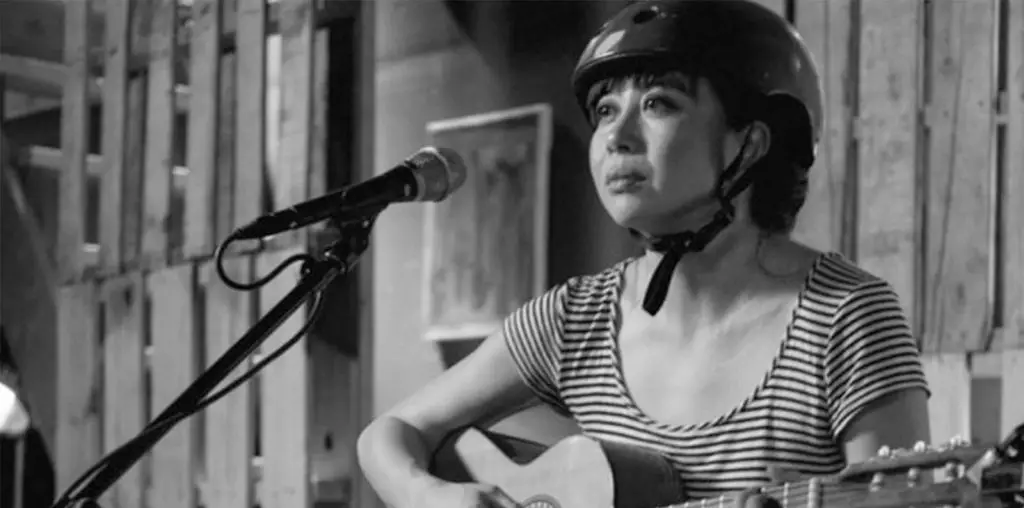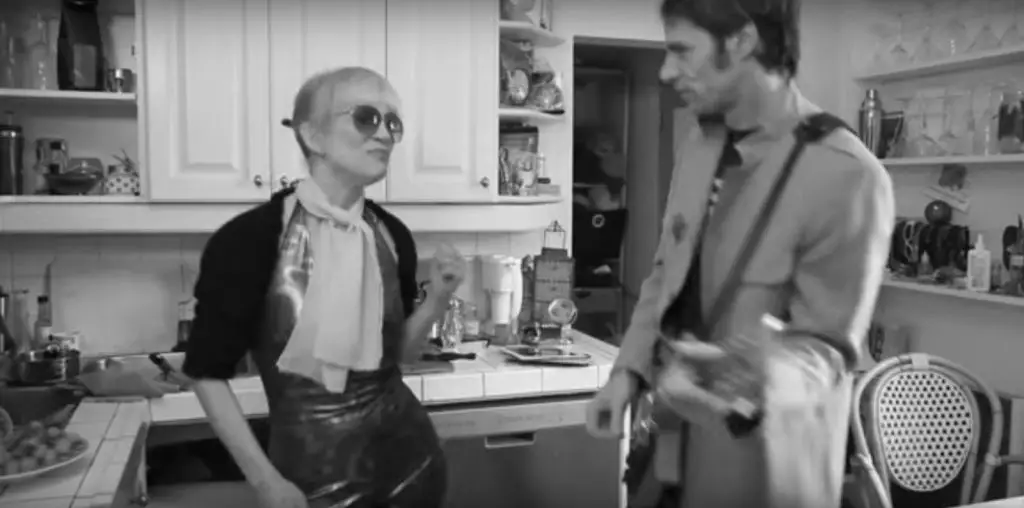
Ximbi Xombix is written, directed, and stars David Kim (aka Dae Hoon Kim). The experimental film follows Kim as Ricco and his bandmates JB (Claudia Pak) and Ja-El (Tareq Almulaifi) as they navigate the fine line between artistic integrity and making a living at what they do. So, they play gigs throughout the town and catch the notice of a corporation.
The offer made by the corporate bigwigs brings up discussions of what it means to sell out. Interspersed throughout is the backstory for the band members and a lot of music video style songs for their band, SheepPsyche. All of this is against the backdrop of a (futuristic?) world wherein “altered foods,” a stand-in for genetically modified food, has turned a portion of the population into zombie-esque creatures. Oh, and voodoo is real.

“…genetically modified food has turned a portion of the population into zombie-esque creatures…SheepPsyche get stuck in virtual reality via voodoo.”
Beyond the attempts to figure out how to properly say Ximbi Xombix (for the record it is Simbi Sombis), there is nothing in the film to engage with properly. Running an exhausting hour and 40 minutes, the film is immensely padded. At best, and this is being generous, there’s enough material here for a 30-minute short. It would only have two songs, a quick intro to the world, and focus on when SheepPsyche get stuck in virtual reality via voodoo. This is the plot point that the marketing seems to have latched onto the most, though it is only a fraction of the story. Good, clean, done.
But Kim has overstuffed his screenplay, while simultaneously under cooking every single element presented. The dialogue is hackneyed and wooden, often resorting to vaguely philosophical platitudes that are no deeper than a wisdom calendar from the dollar store. Such shallow explorations extend to the characters as well. JB’s family explains that happiness is “being able to buy everything you want.” It’s such a direct contrast to her belief in her art to fulfill her soul that exploring their dynamic would be amazing.
However, beyond the one scene where it is explicitly brought up, the film does nothing with this idea. JB never has to choose her family or her art, nor is there any follow-up to her niece, to whom happiness is being defined, discovering that happiness means something different to everyone. One scene, then forgotten. Such is the case with most things in the film.

"…there's enough material here for a 30-minute short."


